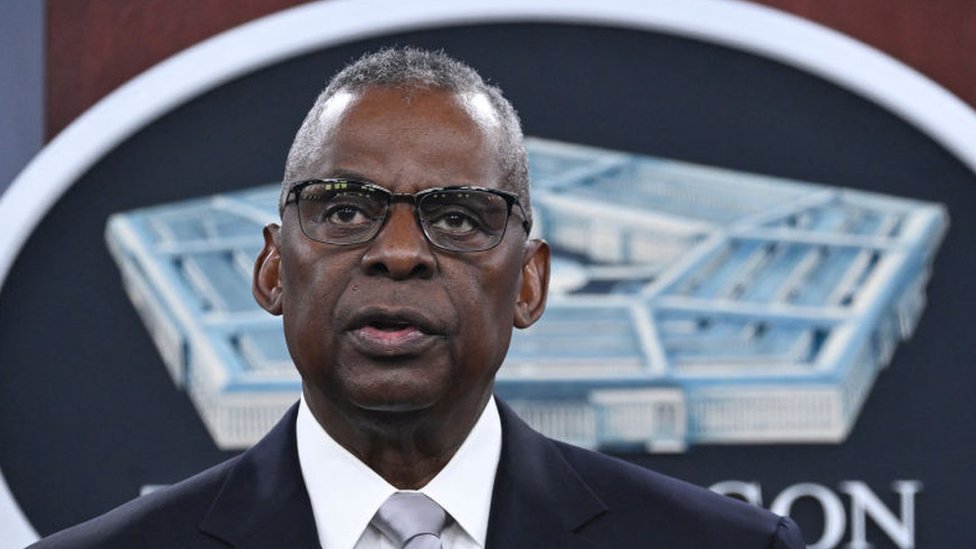Defence Secretary Lloyd Austin apologises for secretive hospital stay
US Defense Secretary Lloyd Austin expressed deep regret for his failure to promptly inform the chain of command when he was hospitalized in December, citing treatment for prostate cancer. Austin, aged 70, was discharged last month as he continues his recovery.
Acknowledging his mishandling of the situation, Austin admitted, “I did not handle this appropriately. I should have informed the president about my cancer diagnosis.” Defense Secretaries are expected to be readily available to address national security crises at any given moment.
Assuming full responsibility, Austin extended apologies to his colleagues and the American public during his initial press briefing since resuming his duties. He conveyed, “While I typically refrain from discussing conversations with my superior, I can confirm that I apologized to President Biden.”
Expressing remorse for the delay in informing the president about his diagnosis and treatment, Austin clarified that he had never instructed his staff to conceal his hospitalization from the White House or the public. However, he refrained from commenting on whether his staff had acted contrary to his directives.
In response to queries about fostering a culture of secrecy, Austin told reporters that he doesn’t believe he cultivated such an environment.
As a critical figure just beneath the president in the military chain of command, the defense secretary holds considerable importance within the Cabinet.
Austin underwent prostate cancer surgery in late December, and complications led to his readmission to the hospital on New Year’s Day, where he stayed for over two weeks due to a urinary tract infection and related issues in the intensive care unit.
Senior defense officials and the White House did not learn that Mr Austin was seriously ill until three days after his re-admission.
The audio of an emergency call made on the day was released by officials as the result of a freedom of information request.
The heavily redacted four-minute call features a caller asking that an ambulance “not show up with lights and sirens” to transport Mr Austin to Walter Reed National Military Medical Center in Maryland.
“We’re trying to remain a little subtle,” said the caller, who has been identified by US media as a member of Mr Austin’s staff.
He remained active in his role amid his recovery and authorized multiple strikes against Yemen-based Houthi militants in the Red Sea from his hospital bed.
President Biden has said he remains confident in his secretary’s leadership, but that it was “sub-optimal” that he had not disclosed the seriousness of his illness.
The incident prompted security and transparency concerns and three investigations have since been launched into Mr Austin’s handling of the situation. He has been called to testify in front of a Congressional committee on 14 February.


